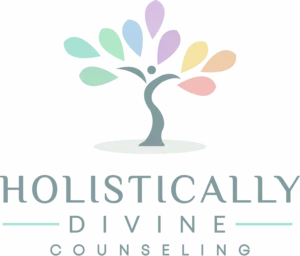Avoid Self-Blame & Shame When in a Dark Season
Author: Sherri S. Wick, MS, LCPC, NCC
Avoid Self-Blame & Shame When in a Dark Season
Author: Sherri S. Wick, MS, LCPC, NCC
Categories
- Grief & Loss
- Identity & Self-Esteem
Life is a journey filled with ups and downs, joy and pain. We all experience moments of vulnerability and difficulty, and it’s during these times that we truly discover our strength and resilience. However, it’s easy to fall into the trap of self-blame and shame when facing challenges. In this blog, we’ll explore the power of letting go of shame and blame and how it can transform your perspective, allowing you to find strength and healing during your most vulnerable moments.
The Trap of Self-Blame
Blaming yourself for difficult circumstances can be a natural response, but it won’t lead to healing. Instead, it locks you in a cycle of negativity, preventing you from finding solutions or forgiving yourself for perceived mistakes.
Recognize that life is unpredictable, and sometimes, hardships are beyond your control. By letting go of self-blame, you free yourself from unnecessary burdens and create space for self-compassion and growth.
Acknowledging Vulnerability
To grow, we must first acknowledge our vulnerability. Life’s challenges can manifest in various ways, such as loss, failure, or mental health struggles. The crucial step is to accept that vulnerability is a natural part of the human experience. Rather than resisting it, embrace it as an opportunity for growth and understanding.
The Downfall of Shame
Shame is a destructive emotion that often stems from the fear of being judged or not meeting societal expectations. During difficult times, it’s common to feel ashamed for not being strong enough or for needing help. However, shame only perpetuates the pain and hinders progress.
Remember, there is no shame in asking for support, seeking therapy, or expressing your emotions. When you release shame’s grip, you open the door to compassion, both from others and, most importantly, from yourself.
Practicing Self-Compassion
Self-compassion is the antidote to shame and self-blame. It involves treating yourself with the same kindness, care, and understanding you would offer a dear friend facing similar challenges. Be gentle with yourself, recognizing that you are human, and experiencing hardship is a normal part of the human experience.
In moments of vulnerability, practice mindfulness and self-compassion techniques, such as meditation or positive affirmations, to cultivate a more loving relationship with yourself.
Seeking Support and Connection
During difficult times, one of the most powerful things you can do is seek support from others. Sharing your struggles with trusted friends, family, or a therapist can alleviate the weight on your shoulders. Remember that vulnerability doesn’t equate to weakness; it takes immense strength to open up and ask for help.
Building connections with others who have experienced similar challenges can also be incredibly healing. Support groups or online communities can provide a sense of belonging and understanding, reminding you that you are not alone in your journey.
Learning and Growth
Every difficult experience brings an opportunity for learning and growth. Embrace these moments as chances to discover more about yourself, your resilience, and your capacity for empathy. View challenges as lessons rather than failures, and you’ll find that each hurdle becomes an essential stepping stone on your path to healing.
In life’s most vulnerable and difficult moments, it’s easy to fall into the hole of shame and self-blame. However, you can unlock a new level of healing and growth by embracing vulnerability, letting go of shame and blame, and cultivating self-compassion. Remember that reaching out for support is a sign of strength, not weakness, and that every challenge is a learning opportunity. Embrace your journey with open arms, for it is through vulnerability that we discover the beauty of our humanity.


